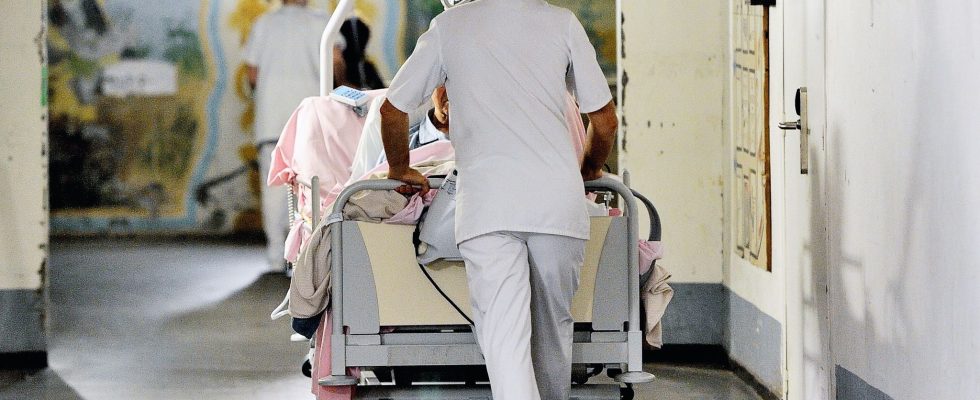Three billion euros more, almost exclusively reserved for the public: the government has decided to increase the prices of public hospitals and the non-profit sector by 4.3% in 2024, but only by 0.3% those of private establishments , triggering the ire of their representatives.
These rates define each year, around the month of March, the amount of reimbursements by Health Insurance to establishments for care procedures, and represent the majority of hospitals’ resources. According to the Ministry of Health, the revaluations granted represent “an increase of 3.2 billion (euros) in establishment resources”, based on a growth in hospital activity of 2.5%. The executive says it wants to “support the resumption of activity in establishments” to “meet the needs of the population and continue the gradual normalization of post-health crisis (Covid) financing”.
Pressured by very high inflation and salary increases for caregivers, both public and private have been demanding increases of 10% since the start of the year, essential to absorb “never before seen” deficits.
In the end, the public emerges as the big winner, even if it obtains less than desired: in the main field of so-called “MCO” activities (medicine, surgery and obstetrics) the increase will be 4.3% in the public and establishments. non-profit private sector, compared to 0.3% for the for-profit private sector. “The decisions are going in the right direction and will support the resumption of activity,” welcomed the French Hospital Federation (FHF), which brings together public hospitals. According to the Ministry of Health, the choices made will make it possible to “boost” particularly “medicine, pediatrics, maternity wards, transplants and palliative care”.
Home hospitalization will also be upgraded, to “promote its development and particularly that of palliative care”. Still for the public, the executive also grants an increase of 3.5% to psychiatry, and 4% to follow-up and rehabilitation care.
“Stop certain acts”
For its part, the Federation of Private Hospitalization (FHP) did not hide its anger after the government’s announcements. “It’s incomprehensible, unfair, pure madness,” reacted FHP representative Lamine Gharbi to AFP.
“With 35% of hospital activity for 18% of allocated resources”, the private sector is “more relevant and efficient” but “finds itself ‘cornered’, under the pretext that we are doing volume”, he said. deplored. The private hospital experienced overactivity in 2023, unlike the public, “which is not able to regain its 2019 activity, and yet we are increasing its allocation. This amounts to paying more to work less”, he said. he scolded.
Lamine Gharbi also said he was “outraged to have learned of these prices in the press” after an interview with the Minister for Health, Frédéric Valletoux, in the newspaper The echoes. Unlike previous years, “we have not had any technical meetings. For a month, it has been radio silence. It is an appalling lack of respect”, he lamented. “Freezing our prices with this inflation is untenable” and in the territories, some will have to “stop certain procedures, such as obstetrics and emergency services, permanent care. Complementarity with the public hospital, It’s over,” he warned.
Hospitals across all sectors ended up returning in 2023 to the activity they had in 2019, just before the pandemic which kept a good number of non-Covid patients out of the hospital, according to national data analyzed by the FHF. But the recovery is insufficient for certain types of particularly heavy and complex care, which the public sector says it assumes mainly. Compared to 2019, 2023 activity was still lower by -7.5% on transplants (reserved for the public), -11% on digestive care, -13% in cardiology, or even -11% in neurology . The FHF warns of the “delay” in the management of chronic diseases such as diabetes or cancer.
The deficit of public hospitals is expected to reach 1.7 billion euros in 2023, an increase of 50% over one year. For its part, the private sector deplores “40% of establishments in deficit” and anticipates that more than 50% will be in deficit by the end of the year without additional funding.
